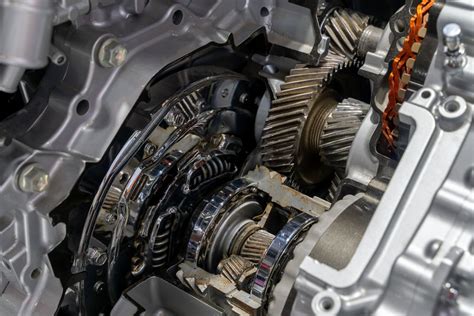Introduction
Honda vehicles are renowned for their reliability and fuel efficiency. However, some Honda models have experienced transmission problems that have raised concerns among owners. This article provides a comprehensive overview of the Honda transmission failure issue, including the symptoms, causes, and potential solutions.

Symptoms of Honda Transmission Failure
Recognizing the symptoms of Honda transmission failure is crucial for prompt repair. Common symptoms include:
- Delayed or slipping gears: The transmission may hesitate or slip when shifting gears, especially when accelerating or going uphill.
- Jerking or shuddering: The vehicle may jerk or shudder during acceleration or deceleration, indicating a problem with the clutches or bands.
- Whining or grinding noises: Unusual noises such as whining or grinding can originate from worn or damaged gears or bearings.
- Check Engine Light illumination: The Check Engine Light can illuminate due to various transmission-related issues, such as low fluid levels or internal component failures.
- Leaking transmission fluid: A leak in the transmission casing can lead to fluid loss and potential damage to internal components.
Causes of Honda Transmission Failure
Honda transmission failures can stem from several factors:
- Design flaws: Certain Honda transmission models have been found to have inherent design flaws that contribute to premature failure.
- Manufacturing defects: Manufacturing errors or defective components can compromise the transmission’s functionality.
- Heat stress: Overheating due to insufficient cooling or high engine loads can damage transmission components, especially friction materials.
- Lack of proper maintenance: Neglecting scheduled transmission fluid changes and filter replacements can lead to sludge buildup, fluid contamination, and component wear.
- Aggressive driving: Aggressive driving habits, such as hard acceleration and excessive towing, can put excessive strain on the transmission and accelerate its failure.
Affected Honda Models
Honda transmission failure has been reported across various models and years, including:
| Model | Year(s) | Transmission Type |
|---|---|---|
| Civic | 2001-2005 | 5-speed automatic |
| Accord | 2003-2007 | 5-speed automatic |
| CR-V | 2002-2006 | 5-speed automatic |
| Pilot | 2003-2008 | 5-speed automatic |
| Odyssey | 2005-2007 | 5-speed automatic |
Statistics and Impact
According to a study by the National Highway Traffic Safety Administration (NHTSA), Honda transmission failure rates have varied over the years:
- 2003-2006: Civic and Accord reported the highest failure rates, with approximately 12 complaints per 100,000 vehicles.
- 2007-2010: Failure rates decreased, with Civic and Accord reporting around 5-6 complaints per 100,000 vehicles.
Honda has responded to these concerns by issuing multiple technical service bulletins (TSBs) and extended warranties for certain affected models.
Solutions and Repairs
Resolving Honda transmission failure typically involves diagnosing the specific issue and implementing appropriate repairs:
- Fluid replacement: Changing the transmission fluid and filter can address minor fluid contamination and restore smoothness.
- Clutch or band replacement: Worn or broken clutches or bands may need to be replaced to restore gear engagement and prevent slipping.
- Overhaul or rebuild: In severe cases, a complete transmission overhaul or rebuild may be necessary, involving disassembling and replacing multiple components.
- Replacement: In rare cases, the entire transmission may need to be replaced with a new or remanufactured unit.
Costs and Insurance Coverage
The cost of repairing a Honda transmission failure can vary depending on the severity of the issue and the model being serviced:
- Minor repairs: Fluid changes and minor component replacements can cost around $200-$500.
- Major repairs: Clutch or band replacements can range from $1,000 to $2,500.
- Overhaul or rebuild: A complete transmission overhaul or rebuild can cost upwards of $3,000.
- Replacement: Replacing an entire transmission typically costs $4,000-$6,000.
Extended warranties or Honda Care coverage may offer financial assistance for transmission repairs beyond the standard warranty period.
Prevention and Maintenance
Preventing Honda transmission failure is essential for extended vehicle life:
- Regular maintenance: Adhere to scheduled transmission fluid changes and filter replacements as recommended in the owner’s manual.
- Avoid aggressive driving: Limit harsh acceleration and excessive towing to reduce strain on the transmission.
- Monitor fluid levels: Regularly check the transmission fluid level and color to ensure it is clean and at the appropriate level.
- Address leaks promptly: If you notice any leaks around the transmission, have them repaired promptly to prevent fluid loss and damage.
- Use quality fluids: Use only Honda-approved transmission fluids and filters to maintain optimal performance and longevity.
Common Mistakes to Avoid
When faced with Honda transmission failure, avoid the following mistakes:
- Ignoring symptoms: Neglecting to address transmission problems can lead to more extensive and costly damage.
- Self-repair: Transmission repairs require specialized knowledge and tools. Attempting DIY repairs can worsen the situation.
- Delaying maintenance: Procrastinating on transmission maintenance can accelerate wear and lead to premature failure.
- Using incompatible fluids: Using non-Honda approved transmission fluids can compromise performance and void warranties.
Conclusion
While Honda vehicles are generally reliable, specific models have experienced transmission problems. Understanding the symptoms, causes, and solutions is crucial for proper diagnosis and repair. By following preventive maintenance guidelines and avoiding common mistakes, Honda owners can extend the life and integrity of their vehicles’ transmissions.
